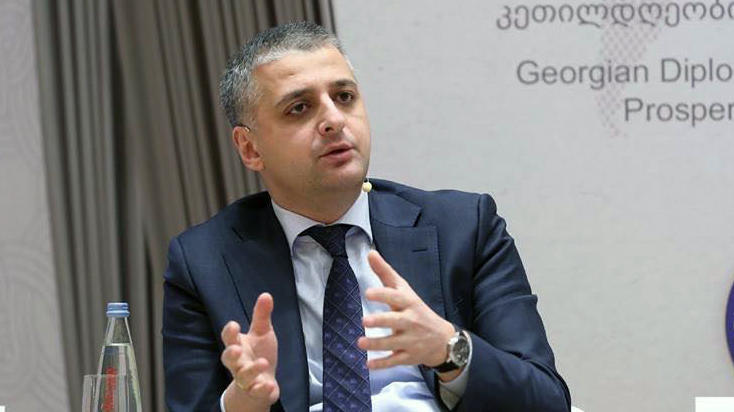European Parliament expresses concern over the lack of progress in the investigation of the abduction of Azerbaijani journalist Afgan Mukhtarli
The European Parliament expresses concern over the lack of progress in the investigation of the abduction of Azerbaijani journalist Afgan Mukhtarli from Tbilisi, which revealed many shortcomings as regards the functioning of the security services, including partypolitical interference, - reads the draft report on the implementation of the EU Association Agreement with Georgia, which is to be brought to a vote at the plenary sitting today.
“The European Parliament calls on the Georgian authorities to further operationalise the country’s human rights coordination mechanism and strengthen its cooperation in multilateral forums; expresses concern over the lack of progress in the investigation of the abduction of Azerbaijani journalist Afgan Mukhtarli from Tbilisi, which revealed many shortcomings as regards the functioning of the security services, including partypolitical interference; calls on the Georgian Government to deliver a prompt and credible conclusion to the investigation, and underscores the need for Georgia to ensure a safe and secure environment for human rights defenders residing within its territory to ensure such actions do not happen again; Notes the implementation of the ECtHR judgement of 28 November 2017 in relation to former Prime Minister Vano Merabishvili, which established a breach of Article 18 of the European Convention of Human Rights by pursuing a ’hidden agenda’ and ‘ulterior motives’ when arresting the former Prime Minister”, reads the report.
It also stresses the importance of a clear, transparent and human-rights based policy and mechanisms for investigating, prosecuting and compensating human rights violations committed during previous administrations, with the assurance that this process fully respects the principles of the rule of law and due process;
The European Parliament calls on the Georgian authorities to take further steps to uphold fundamental freedoms and human rights, notably for vulnerable groups, by fighting hate speech and discrimination, including on the labour market through an amended Labour Code, against LGBTQI people, Roma people, people living with HIV/AIDS, persons with disabilities and other minorities; calls, in particular, on Georgia to harmonise legislation on the rights of persons with disabilities with the UN Convention on the Rights of Persons with Disabilities, which it ratified in 2014; welcomes Georgia’s ratification of the Council of Europe Convention on preventing and combating violence against women and domestic violence (the Istanbul Convention), as well as the adoption of the Law on Official Language and the State Strategy for Civic Equality and Integration, and calls for the swift implementation thereof and the creation of an efficient monitoring mechanism;
The draft report calls on the Georgian authorities to take further steps to protect women against all forms of violence, sexual abuse and harassment at work and in public places, and to increase the number of women on the labour market and in politics where they remain underrepresented;
It calls for a strengthening of the protection of children’s rights, including the prevention of violence against children, access to education for all children, including those with disabilities; reiterates the responsibility of the Georgian Government to thoroughly supervise the situation of children in orphanages and religious residential institutions;
The report recalls the importance of free and independent mass media, editorial independence, as well as pluralism and transparency of ownership in the media environment as key democratic principles; notes with satisfaction the improvements in Georgia as reflected in the 2018 World Press Freedom Index established by Reporters Without Borders; underlines the politicisation of media content; recalls the Rustavi 2 TV channel case.
